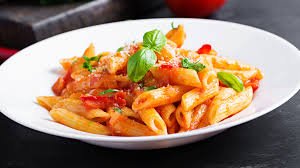Eating pasta daily isn’t inherently harmful, especially when paired with a balanced diet. However, the health impact largely depends on the type of pasta and how it’s prepared. Here’s a breakdown of the potential effects of daily pasta consumption:
1. Carbohydrate Intake
Pasta is rich in carbohydrates, providing your body with energy. However, excessive consumption can lead to blood sugar spikes, especially if made from refined flour.
2. Fiber Content
Whole-grain pasta contains more fiber, promoting satiety and digestive health. Including this type of pasta in your diet can be beneficial compared to regular pasta made from refined flour.
3. Nutritional Value
The healthiness of pasta often depends on the ingredients used. When paired with nutrient-rich sauces, such as those made with vegetables, lean proteins (like chicken or fish), or healthy fats, pasta can be a good source of vitamins, minerals, and protein.
4. Weight Management
Pasta itself is not inherently fattening. However, calorie-dense sauces like cream-based or high-fat options can contribute to weight gain if consumed in excess.
5. Diet Diversity
Eating pasta daily without incorporating other food groups may lead to nutritional deficiencies. A monotonous diet lacking variety can negatively affect overall health over time.
Key Takeaway
Daily pasta consumption can be part of a healthy diet if whole-grain varieties are chosen and paired with nutrient-dense ingredients. Moderation and balance are crucial to avoid potential downsides like weight gain or nutritional imbalances.









